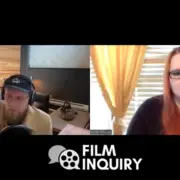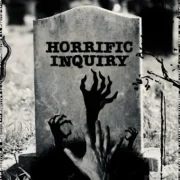Sundance 2021: Interview With DOUBLESPEAK Writer/Director Hazel McKibbin And Lead Actress Angela Wong Carbone
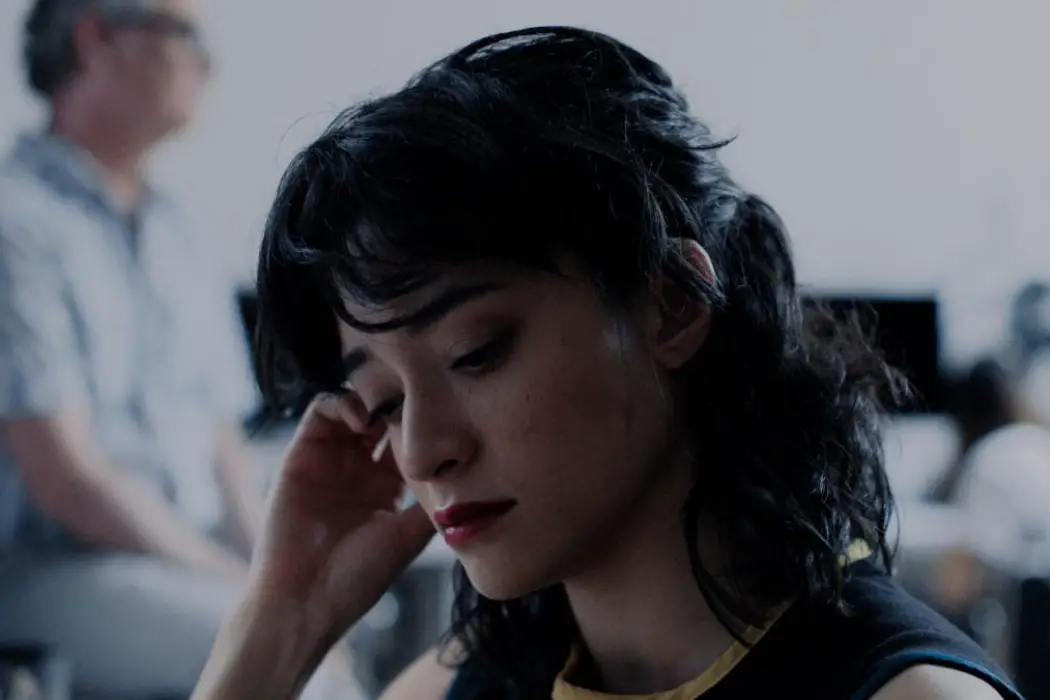
Kevin L. Lee is an Asian-American critic, producer, screenwriter and…
In my review, I have expressed how the Sundance 2021 short Doublespeak affected me as a viewer. It’s a devastating and sadly common subject matter, carried to the screen with beautiful and nuanced direction and performances. Even with a nine-minute runtime, the film leaves an impact just as powerful as a full-length feature film would.
But the truth is this film is also inspiring to me. Writer/director Hazel McKibbin made Doublespeak during her first year as an MFA student at the Columbia University film program. Behind the carefully crafted Sundance short is an exciting story and compelling learning process.
The following is the interview I had with McKibbin and lead actress Angela Wong Carbone, where we talked about the early development of Doublespeak, the writing process behind it, and the overall filmmaking experience of taking something personal and transforming it into something poignant and powerful.
Lastly, we got to talk a little bit about how Doublespeak has empowered me as an aspiring producer and grad student… because I’m in the same MFA film program!
Kevin L. Lee for Film Inquiry: Hi Hazel, hi Angela. It’s so nice to meet you both.
Angela Wong Carbone: Hi, nice to meet you.
Hazel McKibbin: Thank you for talking to us.
Congratulations on getting into Sundance.
Hazel McKibbin: Thank you.
And I wanna thank you both for making such a realistic and devastating film. I have not stopped thinking about it since I first saw it. Thank you for making this.
Hazel McKibben: I’m really glad that it resonated with you.
Yes, very much. My first question, for both of you, is can you walk me through how you found one another during the early stage of putting the film together?
Angela Wong Carbone: Hazel and I were actually introduced through a mutual friend of mine who I took acting classes with at NYU. I auditioned for Hazel at Columbia and I think we instantly had the kind of connection where we understood that each of us could speak almost telepathically about what we wanted to do with this particular film. It was such a lucky experience that we were able to work and kind of volley off of each other. I know that this is a very personal experience for Hazel because the script is based off of her own past experiences and so we were working off of each other to really honor that and bring whatever universal experience and universal perspective we could through the film. It was really, just a purely collaborative experience. I know that even throughout the rehearsal process, on the day we were constantly thinking about how we could make it more genuine, more authentic, and bring all the levels of complexity of that particular situation in the film out. Yeah, I just feel really lucky that we had such a great team, and Hazel is amazing, and the script was so poignant.
Hazel McKibbin: You know, Angela was actually the first person who came in to audition.
Oh wow.
Hazel McKibbin: And we immediately, yeah, clicked. And yeah, it was just such a pleasure to work together on this project.
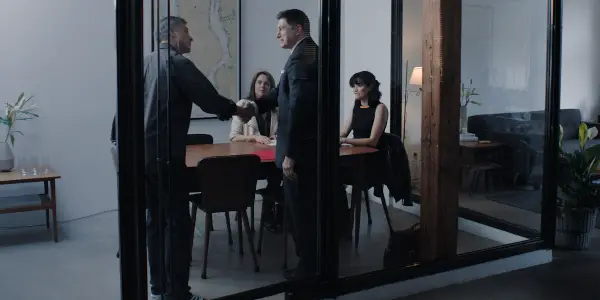
One of the things about this film that I think has affected me so much was your usage of silence. In the film, not much is said yet so much was said to the audience. I’m curious if the script was like that too. Was there anything in the script that you ended up cutting when you eventually filmed it?
Hazel McKibbin: Yeah, there was. We cut actually one whole scene out that didn’t do much of anything. And then in the conference room scene – which was obviously the bulk of the dialogue, although of course Emma’s character doesn’t say much – in the edit, we went through and just pulled out anything that was repeated beats. We just wanted to keep it tight. I wanted the film to be under ten minutes and we just made it as tight as possible, while keeping that legal, weird, coded language thing they have going on, especially in that scene.
So, during your writing process, that structure of having just a few scenes in a tight ten minutes. Did you start with that in mind already?
Hazel McKibbin: Yeah, the script was pretty tight. It was the film I made at the end of my first year of grad school at Columbia, and we had pretty strict parameters for that project, so I wrote the script to exist within budgetary constraints and time constraints. So, we shot it in two days, and it was always intended to be a really tight and small portrayal of this experience.
You shot the whole thing in two days?
Hazel McKibbin: In two days, yeah.
Wow, that’s incredible. It doesn’t look like it.
Hazel McKibbin: We moved fast!
That’s fantastic. During the process of making this, what would you say was the most challenging part and what would you say was the most rewarding part?
Angela Wong Carbone: I think what is challenging and rewarding about the project go hand in hand, because I think for this particular topic of sexual harassment or women who find themselves in these kinds of situations, the most difficult thing is actually getting that understanding and empathy and actually being validated and what is going on. Having these people hear your situation, experience your situation, and say, “Wow, that is not the way it should be. It’s horrible that happened to you and things should change.” You know, there’s a lot of difficulty in constructing the narrative and constructing these characters in a way that people can tap into that empathy. I think the rewarding part of it was that we got such a great response from the film that we were able to connect with not only people who have experienced something similar but people who haven’t experienced anything similar and people across different gender identities. It feels like the film has achieved universal discussion and emotional response that I think we were really pleased to get from it, and we would really hope to get from it.
Hazel McKibbin: Yeah. In addition to that, the script is so based on my own experiences. Actually, some of the dialogue is pulled from a recording I have of my own very similar meeting.
I’m sorry.
Hazel McKibbin: Well, this is one of the good things. We made a film out of it and it was so cathartic for me, but it was also hard to watch. I was conscious of it being hard – especially in the flashback scenes that were improvised – I was conscious of that being hard for Angela to be in that situation. Watching her relive my experience but also knowing that she’s acting it. But we wanted it to feel – I could tell she felt it. So that was hard, but then it was also super cathartic to make a film out of what was a really difficult experience for me.
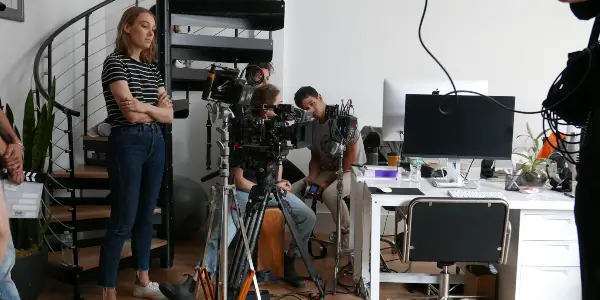
I want to commend you for taking something so personal and painful, but you weave something powerful and very vocal out of it. Angela, I want to commend you as well. I thought your performance was incredible and so much of it was internal too, but I felt every bit of it. I have not stopped thinking about this short since I first saw it.
Hazel McKibbin: Thank you so much. It’s just a testament to Angela’s ability to portray the unspoken thing that the film ended up, given that there’s so little for her to say but she wants to say so much. It was just… I feel really lucky to have worked with someone so talented who could do that.
I’d like to end this interview on a lighter note. Hazel, I am also studying in the Columbia film program.
Hazel McKibbin: Oh nice!
I am a first-year Creative Producing student as well.
Hazel McKibbin: Oh amazing!
Actually, in fact, it was your producer Stephanie Fine who encouraged me to apply!
Hazel McKibbin: Oh my gosh! That is so amazing!
[laughs]
Angela: [laughs]
Hazel McKibbin: Yeah, Steph’s the best! That’s so great to hear! Well, when you get to make your own 8-12 (an 8-12-minute-long short film) at some point, this was my 8-12.
Well actually, they’re not calling it an 8-12 anymore. They’re calling it a 5-12. But yes!
Hazel McKibbin: Fair enough. Well, shorter is better, I think. Right?
Well… that’s debatable.
Hazel McKibbin: [laughs]
Yeah, so I saw Doublespeak at my orientation. I saw it during the Fall, and it has not left my mind since. But since you went through your first year… we are approaching that time where we will also be making our short films, and I just like to get a last question from both of you. From this experience, from putting this film together, what would you say is the biggest advice you can give us? To me, my colleagues, to all the young aspiring filmmakers out there?
Hazel McKibbin: Yeah, for sure. I think two things. Firstly, everybody at Columbia always tells you to write what you know. I think, more than writing what you know, I think the strongest ones are rooted in emotional experiences that you’ve had and can identify with, and it’s super specific. And then also, it should just be fun. Subject matter was hard, but we had an amazing time on set, and it was such a pleasure to work with Angela. I had a mix of Columbia cast and Columbia crew and professionals as well, and we just had fun, and I think it should be fun to make movies.
Angela Wong Carbone: Yeah, I think if you have this piece of art that is coming from your authentic voice, it will attract. You know, great alike creative minds will want to work on this and put their heart and soul into it. I think, when you write from a place of authenticity when you work from a place of authenticity, it does really show through. This film is constructed in a very concise, simple way. You know, there’s not a lot of embellishment. Not a lot of tricks happening. It’s just Hazel’s story put together very elegantly with the help of an amazing cast and crew. I think when you put that voice out there, you shouldn’t be afraid to do it, because I think that will give you the best message and the best outcome, if you really work from that authentic place. It can be scary, but I think it’s worth it.
That’s… incredibly helpful. Thank you. Hazel, Angela, thank you so much for your time today. I really appreciate it. Thank you again for making this film, and congratulations on getting it into Sundance, and I cannot wait… I cannot wait to see what you both make next!
Hazel McKibbin: Thank you so much.
Angela Wong Carbone: Thank you. You too!
Hazel McKibbin: Thanks for having us. And I’ll hopefully see you around in the halls of Dodge sometime before the end of Columbia!
Yes! Yes, hopefully! And I know you’re working on your thesis. I wish you all the best luck in the world for that.
Hazel McKibbin: Thank you so much!
Alright, thank you. Take care alright?
Hazel McKibbin: Take care.
Angela Wong Carbone: Thank you, you too.
Film Inquiry thanks Hazel McKibbin and Angela Wong Carbone for taking the time to speak with us!
Doublespeak premiered on January 28th at the Sundance Film Festival 2021 in the Shorts Program 4 block. It is now publicly available on Vimeo here.
Does content like this matter to you?
Become a Member and support film journalism. Unlock access to all of Film Inquiry`s great articles. Join a community of like-minded readers who are passionate about cinema - get access to our private members Network, give back to independent filmmakers, and more.
Kevin L. Lee is an Asian-American critic, producer, screenwriter and director based in New York City. A champion of the creative process, Kevin has consulted, written, and produced several short films from development to principal photography to festival premiere. He has over 10 years of marketing and writing experience in film criticism and journalism, ranging from blockbusters to foreign indie films, and has developed a reputation of being “an omnivore of cinema.” He recently finished his MFA in film producing at Columbia University and is currently working in film and TV development for production companies.







